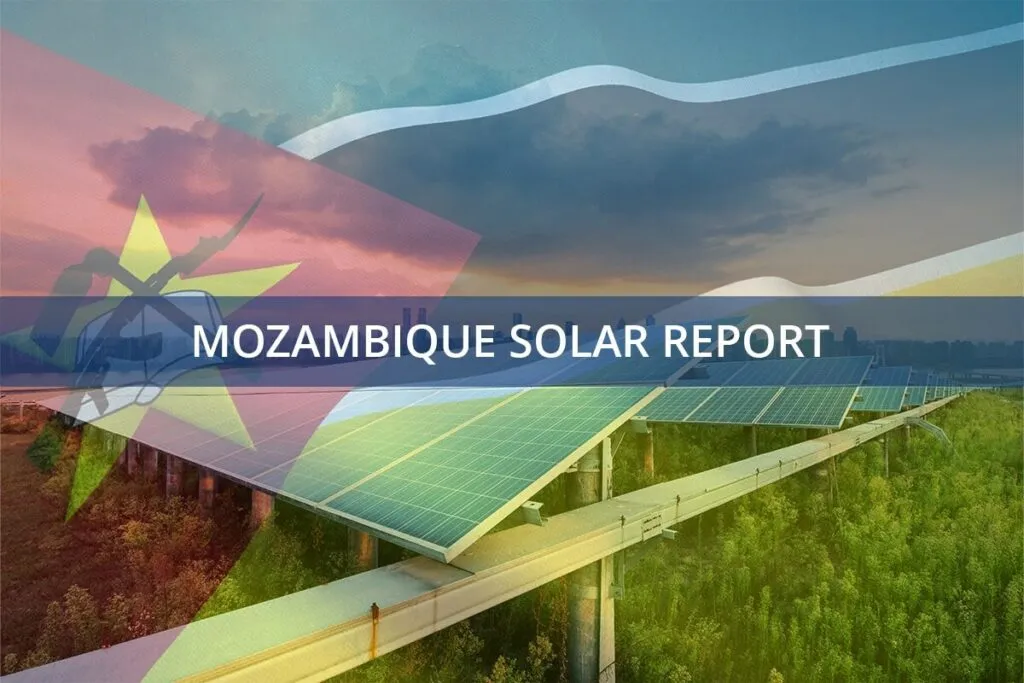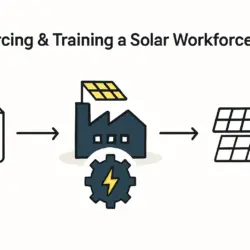Mozambique is charting an ambitious course towards a sustainable energy future, focusing on renewable energy projects to reduce its reliance on fossil fuels and significantly boost energy access for its population. With a comprehensive national strategy in place, the government is leveraging abundant natural resources to diversify its energy sources and drive economic growth.
Renewable Energy Projects in Mozambique: Focusing on Mozambique renewable energy
As a cornerstone of its Just Energy Transition (JET) strategy, Mozambique is advancing two significant renewable energy projects designed to reduce fossil fuel dependency and expand clean electricity access. The government is actively encouraging private investment to help transform the nation’s energy landscape.
The new flagship projects are a 120MW solar plant in Chibuto and a 150MW wind farm in Namaacha, with construction slated to begin by the end of this year.
The Chibuto solar plant, located in the Gaza province, is a forward-thinking project that will feature 120MW of solar power capacity integrated with a 50MW battery energy storage system. Similarly, the Namaacha wind farm in Maputo province will have a 150MW capacity supported by a 50MW battery storage system. The inclusion of battery storage is critical for ensuring grid stability and providing reliable power, even when the sun isn’t shining or the wind isn’t blowing. These projects are not isolated efforts; they are part of a growing portfolio that includes innovative ventures like the planned Mozambique floating solar plant, showcasing the country’s diverse approach. Building such facilities involves understanding the entire solar panel manufacturing process, from sourcing high-quality solar panel raw materials to final installation.
Financing of the Renewable Energy Projects for Mozambique renewable energy
The total investment for these two key projects stands at $270 million. The Chibuto solar plant is allocated $160 million, while the Namaacha wind farm will receive $110 million. The African Development Bank (AfDB) is a key financial partner, providing $50 million for the solar project through its Sustainable Energy Fund for Africa (SEFA) and an additional $10 million for the wind project.
These funds are an integral part of the AfDB’s new Energy Transition Framework. This framework directly supports Mozambique’s comprehensive Energy Transition Strategy (ETS), which requires an estimated £63 billion to £87 billion in investments by 2050. The government’s Investment Playbook is designed to attract these necessary funds and foster public-private partnerships, ensuring the nation can meet its goal of universal electricity access by 2030.
Electricity Access in Mozambique: The Role of Mozambique renewable energy
Mozambique has made remarkable strides in expanding electricity access. Recent data shows that the access rate has surged from 31% in 2018 to approximately 60% in 2024, a testament to the success of government initiatives. Despite this progress, a significant portion of the population still lives without reliable power.
The government’s “Energy for All” program, launched in 2018, remains the driving force behind the goal of achieving universal access by 2030. The program has already connected millions to the grid and continues to expand its reach.
To accelerate this progress, especially in rural areas, the government is promoting private investment through the launch of five new solar projects, each with a capacity of 30MW. These will be developed in the Manica, Sofala, Zambezia, and Nampula provinces. The focus on solar power is strategic, aligning with the country’s long-term goals to install 1,000 MW of solar capacity by 2030.
The development of Mozambique renewable energy is crucial for both improving electricity access and achieving a sustainable energy transition. By actively promoting private sector participation and developing key projects, the government is laying the groundwork for a cleaner, more prosperous future. This national effort is part of a larger story detailed in the Global Solar Report, which tracks the worldwide shift towards renewable sources.
To learn more about the fundamentals of solar energy production, consider exploring our free e-course on solar panel manufacturing.



